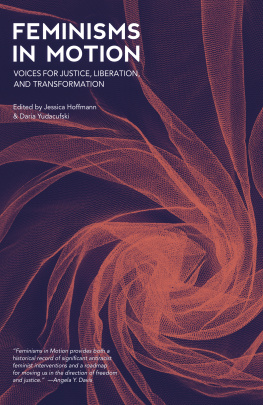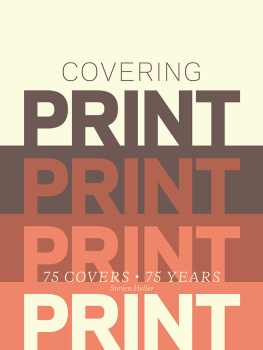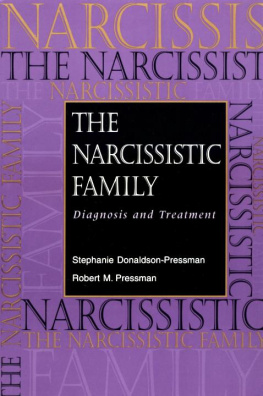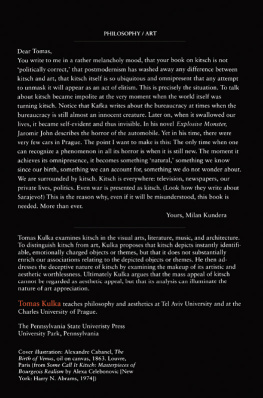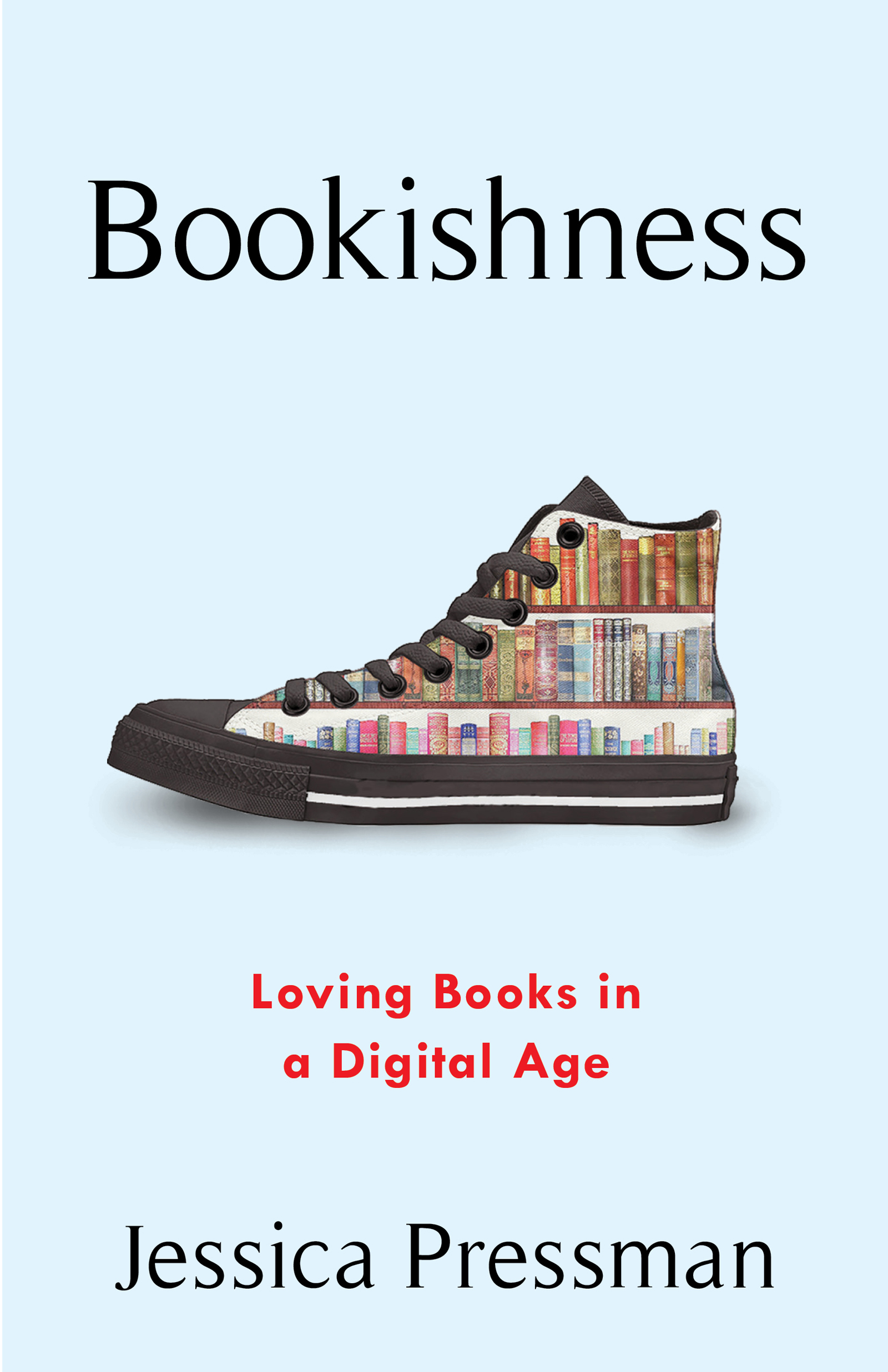MATTHEW HART, DAVID JAMES, AND REBECCA L. WALKOWITZ, SERIES EDITORS
Literature Now offers a distinct vision of late-twentieth- and early-twenty-first-century literary culture. Addressing contemporary literature and the ways we understand its meaning, the series includes books that are comparative and transnational in scope as well as those that focus on national and regional literary cultures.
Names: Pressman, Jessica, author.
Title: Bookishness : loving books in a digital age / Jessica Pressman.
Description: New York : Columbia University Press, [2020] | Series: Literature now | Includes bibliographical references and index.
Identifiers: LCCN 2020022437 (print) | LCCN 2020022438 (ebook) | ISBN 9780231195126 (hardcover) | ISBN 9780231195133 (trade paperback)
Subjects: LCSH: BooksSocial aspects. | Books and readingSocial aspects. | Literature and technology.
Classification: LCC Z116.A2 P87 2020 (print) | LCC Z116.A2 (ebook) | DDC 302.23/2dc23
A Columbia University Press E-book.
CUP would be pleased to hear about your reading experience with this e-book at .
Twelve Souths BookBook for iPhone
Headboard made from books
Necklace comprising miniature books
Store window in New Orleans using books as decorations
Bookish cupcakes by Cakes and Cupcakes Mumbai
Twelve Souths Mac BookBook
Pamela Paulsruds Touchstones (2013)
Brian Dettmer, New Funk Standards (2017)
Jane Austen duvet cover
Apple iBook app interface
Three-dimensional text in Amaranth Borsuk and Brad Bouses Between Page and Screen (2012)
Final shot of The Joy of Books (2012)
Page layout from Leanne Shaptons Important Artifacts and Personal Property from the Collection of Lenore Doolan and Harold Morris, Including Books, Street Fashion, and Jewelry (2009)
Example of a blook
Stack of books as home dcor, from Target.com
Bookish comforter that you can read while resting in bed
Pride and Prejudice leggings
Slipcover and bookish insert elements in J. J. Abrams and Doug Dorsts S. (2013)
Fake marginalia in the pages of J. J. Abrams and Doug Dorsts S. (2013)
Screenshot from the augmented-reality narrative game The Ice-Bound Concordance (2016)
Bookishness in The Ice-Bound Compendium
Excerpt from House of Leaves, the remastered, full-color edition, by Mark Z. Danielewski (2000)
Concrete poetry shark in Steven Halls The Raw Shark Texts (2007)
Flipbook sequence of shark emerging from depths
Page layout from Jonathan Safran Foers die-cut book Tree of Codes (2010)
Front cover of Jonathan Safran Foers Tree of Codes
Doug Beube bookwork sculpture, Inside Macintosh (2005)
Paper email
T his is a book about feeling attachedto books, bookish identities and communities, and moreand this book only came into the world because of my personal attachments over the last decade. After such a long, nonlinear path, it is a privilege to be able to thank those who supported me along the way.
I was eight months pregnant (and had to get permission from my doctor to travel), but I flew from New Haven, Connecticut, to Ann Arbor, Michigan, to speak at the Bookishness symposium that Jonathan Freedman organized at the University of Michigan.
Jonathan Freedman took a chance on me, a very green professor. He invited me to participate alongside two of the scholars I most respected, Alan Liu and Leah Price, and then published my talk in the Michigan Quarterly Review (after great editorial insights, for which I remain grateful). Jonathan Freedman is one of the more generous scholars I know, and I thank him for that first push that helped produce this book.
The bookishness article in the fall 2009 issue of Michigan Quarterly Review remained the only thing published from this book for a long while, but it was enough. The topic had legs, and it gave me passage to explore the idea of bookishness through a series of talks given at beautiful universities and with brilliant audiences. These include the Yale Beinecke History of the Book lecture series, the University of Utrecht (The Netherlands), Amsterdam University (The Netherlands), Justus-Liebig-Universitt (Germany), Konstanz University (Germany), Michigan State University, NYU Abu Dhabi, UCLA, UCSB, USC, University of Iowa, SDSU, the Shota Rustaveli Institute of Georgian Literature (Tbilisi, Georgia), and the University of Southern Denmark. I am grateful to Kiene Brillenburg Wurth, Heike Schaeffer, Anna Weigel, Justus Nieland, Tom August, Erin Graff Zivin, Irma Ratiani, Rita Felski, and others for invitations to share my work. I am also deeply in debt to the generous and insightful interlocutors who asked questions, offered critiques, sent follow-up suggestions, and otherwise helped shape this book.
This book was also written over a period of personal and professional ambulation. I left a tenure-track job at Yale to move with my family (and to my extended family) to my hometown of San Diego. I arrived with no job prospects, but friends quickly emerged. UCSD offered safe landing under the generous guidance of Michael Davidson. I found a space to lecture about books in the digital age and an invaluable friendship with Liz Losh. Stefan Tanaka gave me freedom to spread my wings by organizing a digital humanities lecture series and a platform from which to build a professional life in my hometown. Seth Lerer kept me feeling scholarly, and Lev Manovich reminded me why I love the digital arts. Joanna Brooks found me at UCSD and stewarded me to SDSU. I am forever grateful to each of them.
At SDSU, I grasped the golden ring of academia: I found an institutional home in the place I wanted to live. It is not hyperbole to say that I am blessed to work at SDSU and to be surrounded by colleagues like Phillip Serrato, Quentin Bailey, Bill Nericcio, Yetta Howard, Angel Matos, and Peter Herman, all of whom have read parts of this book and offered helpful suggestions on it. In particular, my colleague and dear friend Michael Borgstrom provided invaluable, incisive insights with grace and generosity, helping me see the big questions and also the reasons I should care about them.
My earliest readers of this project were colleagues at Yale: Caleb Smith, R. John Williams, Justin Neuman, and Jessica Brantley. Among those earliest trusted readers was Sam See. He left us far too early, and I miss him.




